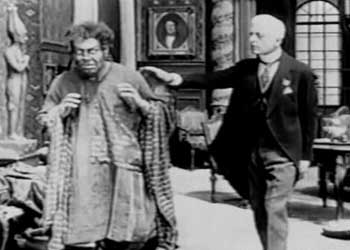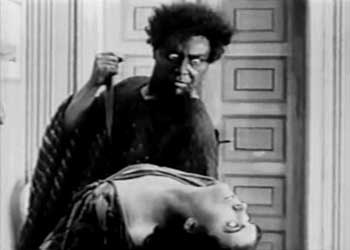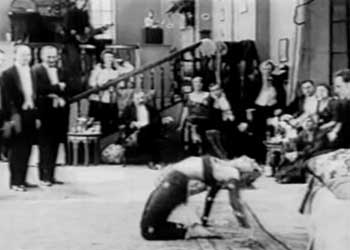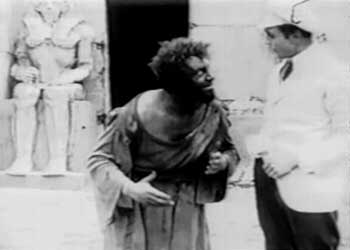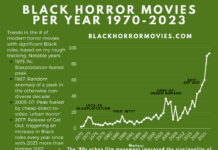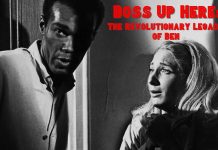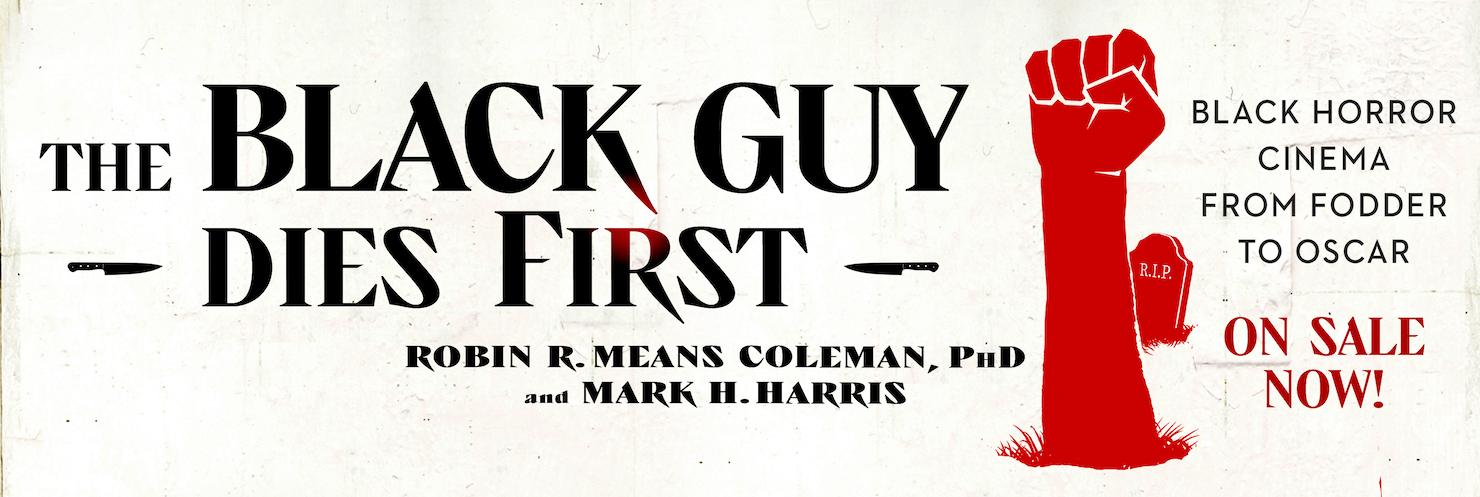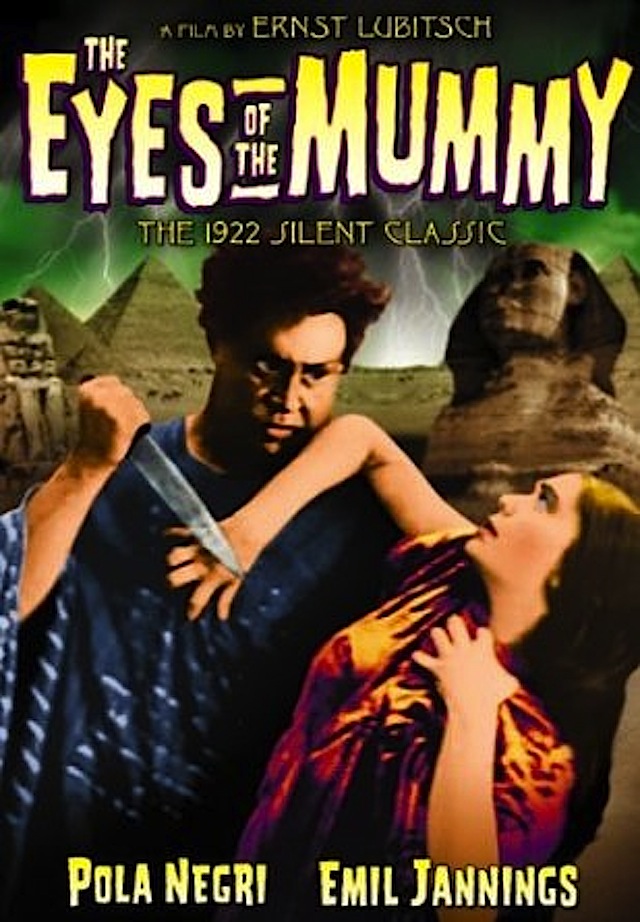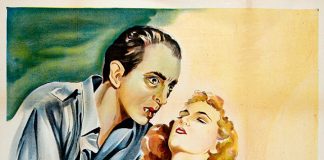This early silent film from famed German director Ernst Lubitsch shows that, while he would become vehemently anti-Natzi (being Jewish and all), Lubitsch may have had his own racial hang-ups. The film follows Albert Wendland (Henry Liedtke), a British painter, as he “takes a sejour to study in Egypt”. What a sejour is, I don’t know, but Egypt looks suspiciously like a slag heap in Deutschland.
While there, he overhears that anyone who visits the tomb of Queen Ma becomes cursed. A shell-shocked man who’s been there can only mutter, “The eyes are alive!” Undeterred and exceedingly stupid, Albert waddles around in his bourgeois riding pants, recruiting locals to take him to the tomb. Once he gets there, he encounters the movie’s heavy, Radu (Emil Jannings in blackface), who guards the tomb.
Albert discovers that Radu is keeping a woman named Ma (Pola Negri) captive (He sees her eyes peering through a sarcophagus; hence the film’s title and the closest thing to a mummy you’ll find in this melodrama.), so being the hero that he is, he frees her. Radu tries to stop him, but he’s powerless against the white man’s massive nudge. Down he goes, nearly mortally wounded from landing on the hard…desert sand?
The twosome immediately fall in love, and Albert whisks Ma back to England, where he tutors her in the ways of Europeans (“The Aryan is the master race,” for example.). He throws a party to introduce Ma to his friends, but while everyone waltzes, she feels out of place. So, she puts on her native garb and proceeds to perform an absurdly Eurocentric version of what an “Oriental” dance looks like. Back in the day, I think this was supposed to have been sexy, or at least not vomitous, which it is in this day and age. It’s like watching your wide-hipped grandmother flutter around on her tippy toes wearing a belly shirt. The Bangles’ “Walk Like an Egyptian” had more cultural validity. Of course, though, the crowd goes wild, and she’s signed by an agent to perform all across Europe.
After a roundabout series of encounters that makes the 60-minute run time feel twice as long, Radu eventually tracks down Ma. He crashes through her window and is about to stab her when he realizes that he loves her too much. Too bad she falls down the stairs and dies. Grief-stricken, Radu kills himself.
This is the only borderline redeemable moment for Radu, who, though both he and Ma are presumably Egyptian (he’s described as an “Arab”), is disproportionately darker-skinned than her, with wild, woolly hair that offsets her straight, “civilized” ‘do. His beast-like stature, with bulging eyes and exaggerated expressions, conjures up comparisons to Birth of a Nation. Of course, The Eyes of the Mummy isn’t the racist bung sediment that Birth of a Nation is, but it is indicative of the social standards of the time. On the bright side, it may have ended World War I; within a month of its release, Germany surrendered, perhaps to open its borders so that Lubitsch could make his sappy, non-mummy-having films elsewhere.
